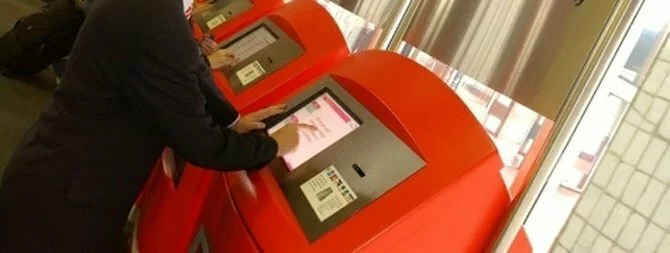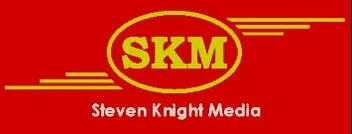
There is no doubt that rail fares are both complex and confusing. Many of the fares currently available are based on historic routing. Whilst new fares are ‘easily’ added to the fares database there is little incentive for train operators to remove some of the archaic fares that are seldom, if ever, sold. There needs to be a massive clear up of the fares database, but what we have is a trial which by implication will look at a very small selection of fares and journeys.
Train operators will spout about the large number of what they call ‘value for money’ advance fares available, but they aren’t convenient in terms of times of availability for everyone. It is really only in the last four years since leaving the railway that I have really appreciated the real cost of rail travel. Having spent 12 years in the industry enjoying free and discounted travel and the best part of 12 years before that as a journalist where free tickets were aplenty. Indeed some specialist journalists still enjoy free travel with unlimited passes, which one operator put a value of over £25k a year on. I personally now accept that if you get free or discounted rail travel it is difficult to understand the complexities of the fares system for rail users who are having to pay full whack. I certainly didn’t but can tell you I do now. So, when planning my travel I now look for the cheapest option and have to say that I am a great advocate of split ticketing - breaking a journey into separate smaller legs, although of course you stay on the same train and in the same seat. You can even save money by using split ticketing with the cheaper advance tickets. I estimate over the last few years I have probably saved approaching £1,000 by using split ticketing. Then there is the case on some routes where a seven day season ticket costs less than two anytime return journeys, so if travelling over a route for just two days a seven day ticket saves money. So in my view, the rail fares system need an upgrade and its needs it now. Yes, a trial is a start but the industry and the Department for Transport must ensure that the trial is reviewed in real time and any recommendations are dealt with promptly. But that could cause other issues. It is quite probable that any changes to rail fares will result in a reduction of farebox income to the train operators. That will affect the business plans and revenue projections of the franchised train operators. Given the franchises are based on very tight financial plans it could mean that the taxpayer will end up paying the cost of a fares review. So back to the trial, what will it mean. The Rail Delivery Group says that passengers on trains between London and Sheffield or Scotland will be among the first to benefit from an overhaul of rail fare regulations as part of the tests agreed between train companies and the government and attention is also to be focused on ticket machines to make then more user-friendly and give customers better information and make it simpler to find the right ticket at the right price. The trials are due to start in May this year on selected routes will comprise new pricing and simpler route options to give customers clearer choices, whilst unnecessary and unwanted fares in the ticketing system will be removed. The RDG says the trials to simplify the complex rail fares system will mean: A route will be overhauled to reflect what is actually on offer, ending the existing situation where changes to train services in many cases only allow fares to be added to the system rather than older, less relevant routes which customers do not use being removed from the fares system to make it clearer; A best value end-to-end ‘through fare’ will be offered for test journeys where customers change trains, by offering one price combining the cheapest fare for each leg of the journey. Current rules require operators to set and maintain a through price even where there are cheaper deals; Easier journey planning by showing customers the best price in each direction on selected routes, allowing customers to mix and match the best fare - like airline bookings. This requires changes to regulated return fares dating back to the 1980s that can’t be sold easily online, giving customers much more clarity and simplicity. A ten-point plan and design guidelines for ticket machines include getting rid of jargon, informing customers when a machine will start to sell cheaper off-peak tickets and making clear what types of tickets machines do and do not sell. All the improvements to ticket machines will be in place by the end of this year, several by the summer. Jacqueline Starr, RDG Managing Director of Customer Experience, said: “We know customers can find it hard to get the right ticket for their journey due to complex rules and regulations built up by governments over decades. There are more than 16million different train fares, many of which nobody buys. This also makes it more difficult to give passengers the right, simple options on ticket machines. “Working with government, we’re determined to overhaul the system to cut out red-tape, jargon and complication to make it easier for customers to buy fares they can trust, including from ticket machines.” The trials will be designed to establish the changes needed to regulation and processes so that train companies can offer customers simpler, easy to use fares. Decades-old government rules covering rail fares, originally intended to protect customers but introduced before the internet and online booking, have prevented train companies from being more flexible in offering tickets that customers want. The changes will build upon improvements already being made to give customers better information – particularly for those buying online or from ticket machines - and more confidence that the tickets they are buying are right for their journeys, making it clear when and where they are valid. Train companies have worked with the government and consumer groups to agree an action plan to help passengers choose the best deal on fares (document can be downloaded below). The trials will focus on three typical examples of the need to modernise rail fares regulations, where they create confusion and show too many different fares: Routeing changes will be tested between London and Sheffield where regulations date back to when the direct service was much less frequent and journeys often needed a change of train via a longer route. This means that tickets are required to be available which are not in step with actual options available now. Best-price through fares will be tested with CrossCountry Trains who are obliged currently by regulations to price through tickets for very long connecting journeys even where customers can beat that price by combining different types of ticket (so-called ‘split ticketing’). Train companies want to remove these expensive, obsolete through fares which in many cases nobody buys but are required by regulations which pre-date the internet and online booking. Single-leg pricing will be tested on the London-Glasgow and London-Edinburgh routes so that customers would always know the cheapest fare for their chosen journey, out and back. Despite train companies making online booking easier, finding the best price both ways is made harder because the regulated off-peak fare is a return fare, therefore customers are often left to calculate whether two single tickets are cheaper than a return. Regulations were designed to protect customers’ interests but now actively create confusion on websites and ticket machines. Train companies want to work with the government to discuss how the system can be updated so that consumer protection underpins giving people fares they really need - not just those on sale since 1995. General Secretary of the RMT union Mick Cash said; "This is an open admission by Britain's private train companies and the Government that they have been ripping off the travelling public for over two decades. "If we want a fair deal on fares then that means keeping ticket offices open, keeping staff on the stations and platforms and nationalising our railways into one publicly owned body with one pricing structure. "The proposals from the train companies today are just pure window dressing from the same old racketeers who have been plundering our railways since privatisation."
Comments are closed.
|
||||||
- Home Page
- About SKM
- Fleet Updates
- Fleet News Ramblings
- Press Releases
- The Steven Knight Media Blog
- Our Books
- Contact us
- Home Page
- About SKM
- Fleet Updates
- Fleet News Ramblings
- Press Releases
- The Steven Knight Media Blog
- Our Books
- Contact us

